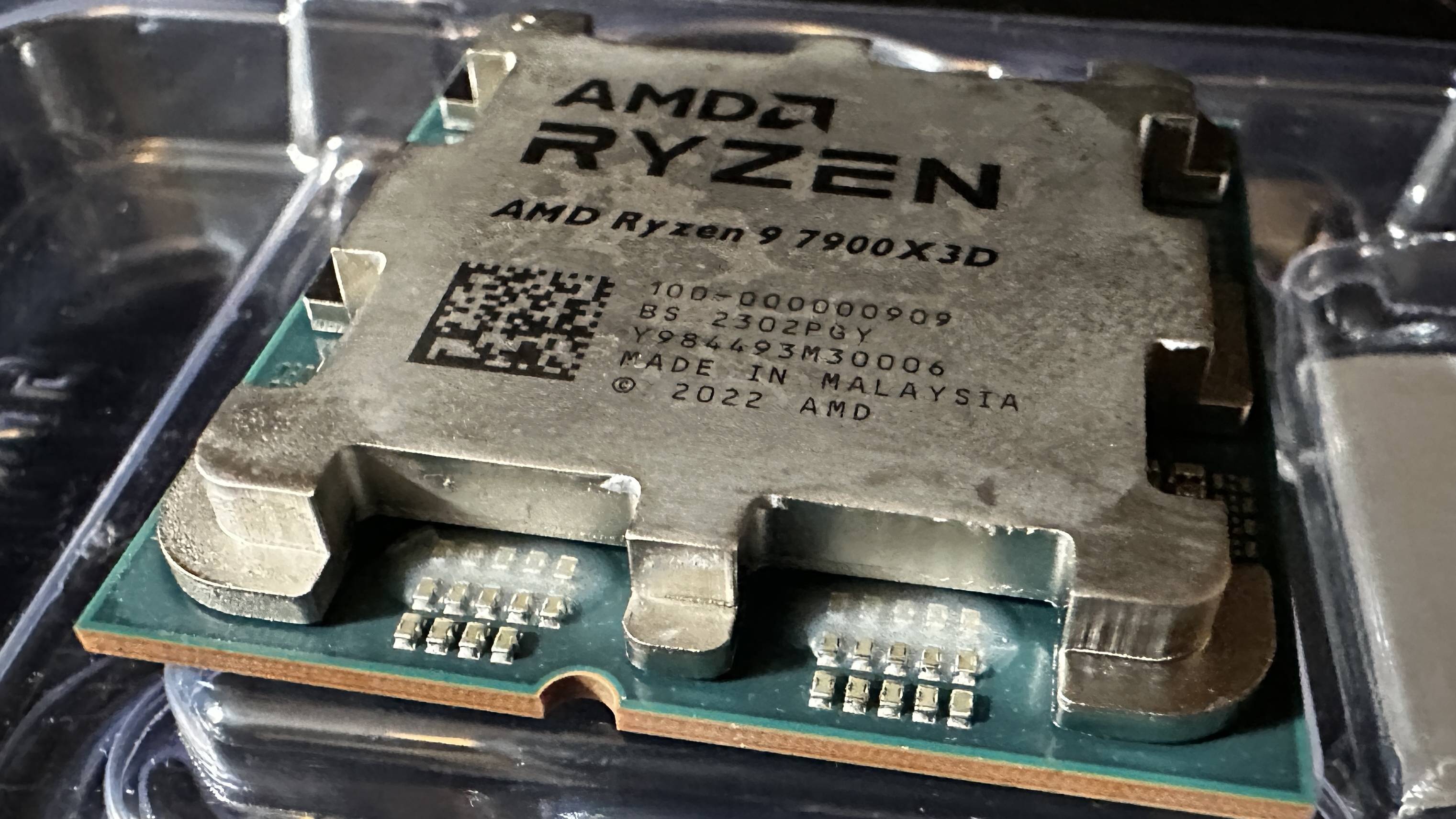AMD’s Ryzen 7900X3D is now so cheap it might tempt some PC gamers away from buying an Intel CPU
And it may even tempt would-be buyers of the 7800X3D to go for 12-cores instead

Sign up for breaking news, reviews, opinion, top tech deals, and more.
You are now subscribed
Your newsletter sign-up was successful
AMD’s Ryzen 9 7900X3D, the 12-core processor that benefits from 3D V-Cache, has never been so cheap in the US – and it’s coming down in price elsewhere, it seems.
VideoCardz spotted that the Ryzen 9 7900X3D has been reduced to $389 at Newegg and Amazon in the US (albeit in both cases, a code or coupon needs to be applied).
The normal MSRP of the 7900X3D is $599, to give you some perspective on how far the price tag for this 12-core chip has dropped. Granted, in recent times it has been seen at $400 or just over, but this is the first time it has sneaked below that level.
With the price cut being applied at the same time for Amazon and Newegg, to the exact same level, it seems like this is an officially orchestrated discount from AMD (though we don’t know that for sure).
Sitting at $389 in the US, the Ryzen 9 7900X3D is now 35% under its MSRP, and in fact only $20 more than the 7800X3D at Newegg (at the time of writing). All of which makes the 7900X3D look pretty compelling, especially when you consider the price tag of a top-end Intel processor (the Core i9-14900K is 40% more expensive, again at the time of writing).
Outside the US, the 7900X3D also seems to be considerably reduced, although not to the same extent – with 20% off in the UK for example. So, further price falls may be coming to other regions, perhaps…
So, for those going AMD, given that the Ryzen 9 7900X3D is a 12-core CPU versus the 8-cores of the 7800X3D, and it has faster clock speeds to boot, it’s now a no-brainer to buy the beefier Ryzen 9 part, right?
Sign up for breaking news, reviews, opinion, top tech deals, and more.
Well, no, and if you’re only interested in PC gaming in the main, the typical advice is to stick with the 7800X3D – but let’s dig into that a bit more.
Analysis: For AMD gamers, cache configuration matters
Okay, so first off, there’s no denying the strengths of the Ryzen 9 7900X3D (four extra cores, faster clocks) mean that if you’re going to use the CPU for other tasks as well as PC gaming, it’s the better choice for just $20 more compared to the 7800X3D.
The issue for gaming lies in the way that the 3D V-Cache is configured with these two AMD processors. In the 7900X3D the cores are split over two chiplets, with six cores each, and only one chiplet has the 3D V-Cache. But with the 7800X3D there are just eight cores, and with no multi-chip design, all eight cores get the benefit of the cache – meaning two more cores than the 7900X3D.
So, conventional wisdom and benchmarks have shown the 7800X3D to be better for gaming – and it’s cheaper (not by much, now, mind). However, of late we’re seeing some claims, and indeed benchmarks on YouTube, that show the 7900X3D is generally very competitive with the 7800X3D now. The theory is that it has been better refined so its multi-chip configuration isn’t such a drawback, and that’s certainly a sentiment aired in some forums in recent times.
That said, we obviously need to be careful about putting too much stock in that idea (this isn’t testing we’ve undertaken ourselves). However, whichever way you dice it, the 7900X3D isn’t that far off the 7800X3D in most games realistically, and given how much better the chip is for everything outside of gaming, the 7900X3D seems a sterling choice at this current pricing level. Especially for anybody who uses their PC for productivity or creativity in any kind of fashion.
If you do pull the trigger on a Ryzen 9 7900X3D, just ensure your drivers are up to date (chipset, motherboard) to get the full benefit of the latest (apparent) tweaking and honing for this CPU. But the 7800X3D remains a top dog processor for the money and is still rated as our best gaming CPU currently.
You might also like
Darren is a freelancer writing news and features for TechRadar (and occasionally T3) across a broad range of computing topics including CPUs, GPUs, various other hardware, VPNs, antivirus and more. He has written about tech for the best part of three decades, and writes books in his spare time (his debut novel - 'I Know What You Did Last Supper' - was published by Hachette UK in 2013).